Financial Well-Being Innovation Challenge Aims to ‘Unstack the Deck’ for Detroiters
Published on July 25, 2023 in Basic Needs
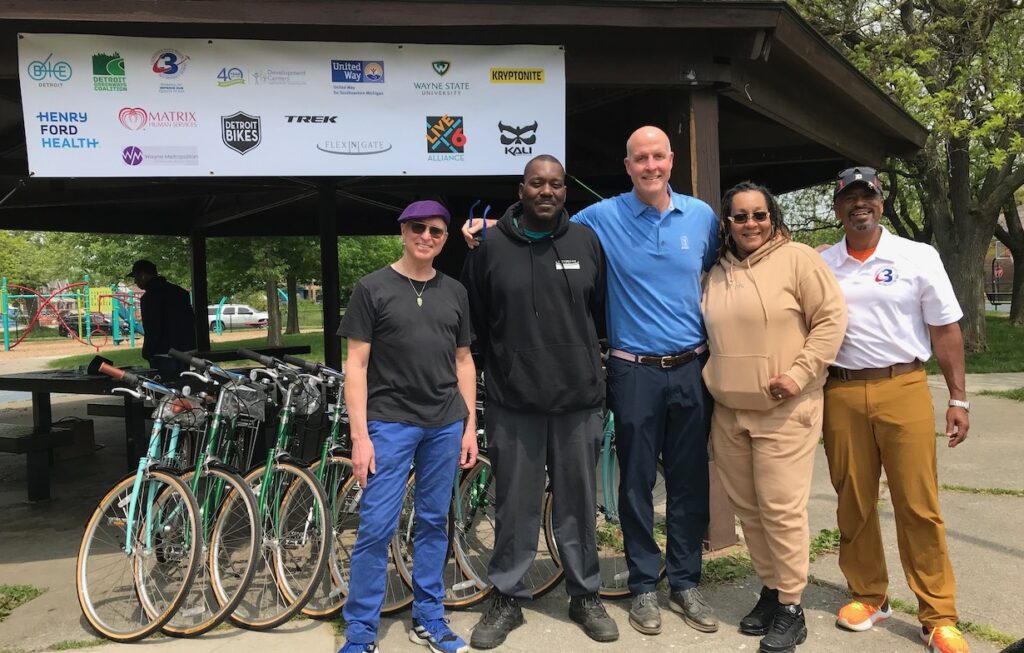
Kortez Harris hasn’t been handed many things throughout his life. Gripping the handlebars of his brand-new bike – this feels different.
The bike, provided by Bikes 4 Employees Detroit (B4E), a Detroit Greenways Coalition program, will allow Kortez to cycle to and from his job as a forklift driver at Flex-N-Gate. He can now better explore the city he’s called home for more than 36 years.
B4E is one of 17 teams that received a $20,000 planning stage grant in the Detroit Financial Well-being Innovation Challenge. The challenge launched in February 2022 as a $2.5 million, five-year initiative to drive innovative solutions to advance financial well-being in Detroit. At the end of each of the four competitive stages of the challenge, a subset of teams moves on. The pilot stage, in which six teams will receive up to $200,000 each, began this summer. The challenge culminates with the scale stage: That’s when one or two teams will receive up to $1,000,000 in funding and continued technical assistance to scale their project to serve all Detroiters.
Just over half of Detroit’s residents are either financially insecure (32%) or in financial trouble (24%), according to a recent University of Michigan Poverty Solutions report. The innovation challenge provides seed funding for innovative pilot programs and initiatives focused on addressing underlying structural and systemic barriers to financial well-being.
“The U of M report showed that the problem of financial disadvantage in Detroit is not that Detroiters just somehow manage to make worse financial decisions than everybody else,” said Megan Thibos, economic mobility initiatives director at United Way for Southeastern Michigan. “The problem is that the set of choices that Detroiters have to choose from are systemically worse than the options people have in other communities because of decades of disinvestment, systemic racism and other societal ills.”
The Financial Well-being Innovation Challenge, led by United Way for Southeastern Michigan in partnership with the University of Michigan’s Poverty Solutions, is an intentional departure from traditional approaches to economic mobility that accept systemic disadvantages as hurdles for individuals to overcome. Instead, as part of a competitive, phased process, applicants were asked to propose bold, new solutions that would transform longstanding systems.
“The deck of financial opportunity is stacked against Detroiters. This challenge was designed to catalyze game-changing, innovative ideas that are going to unstack the deck for ALICE households – to create more financial opportunity so that hard-working households have a fair shot at financial stability instead of being forced to try to succeed against the odds” Megan said.
BIG IDEAS ONLY
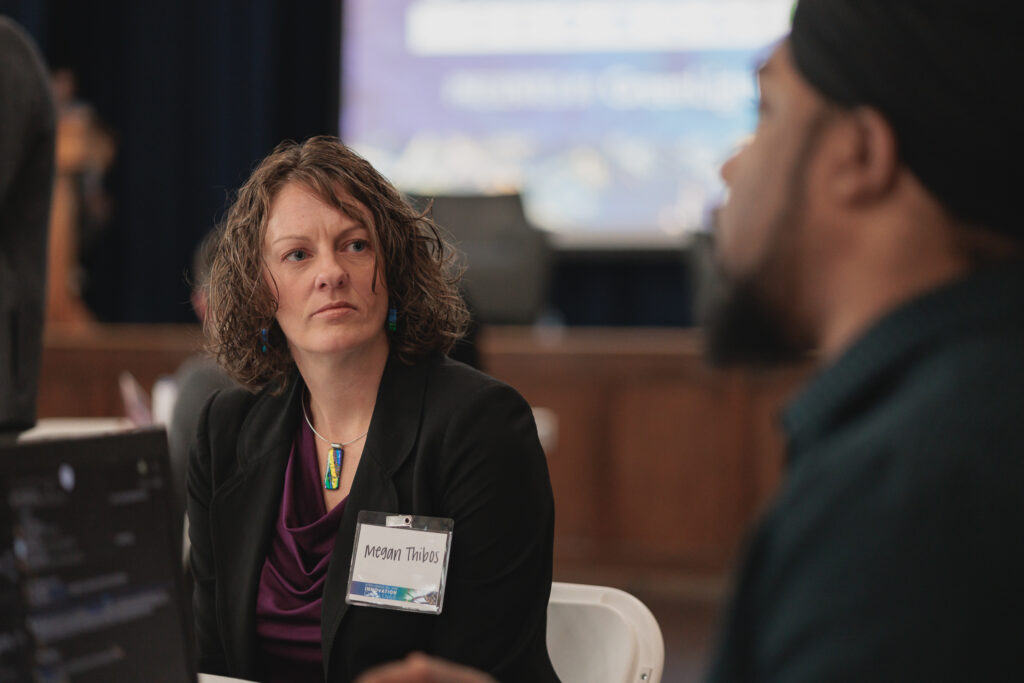
“We included non-traditional grant-seekers and systems-level stakeholders like financial institutions and local government agencies because we were really looking for ideas big ideas that were going to change the game,” Megan said. “We weren’t just trying to teach people how to play the game better.”
B4E, for example, tackled transportation, which is a significant expense for ALICE (Asset Limited, Income Constrained, Employed) households. For many Detroiters, a lack of transportation represents a huge barrier to opportunities.
Before receiving the bike from B4E, Kortez would take Lyft rides to work – spending as much as $300 per week – a substantial portion of his take-home pay.
In addition to saving money, Kortez said the new bike will help improve his activity level and health – goals that align with what B4E set out to help people accomplish through the program.
In 2021, the organization provided high-quality bikes to 44 Detroiters. Of those recipients, 100% achieved one or more of the goals they set for themselves and reported improved physical health. More than 80% said their outlook on life had improved.
“Detroit has been trying to solve this cost of car ownership and insurance problem for a long time. Clearly, no one has been able to come up with a solution,” said Tim Springer, B4E Program Manager. “I think it’s innovative to explore transportation that doesn’t require insurance – like bikes.”
On average, car insurance premiums in Detroit cost $5,414 per year, which represents 18% of the median household’s pre-tax income. In other Midwest cities, like Cleveland, auto insurance costs residents just 4% of pre-tax income. Detroit police estimate that 60% of Detroit drivers they stop are driving without insurance, risking license suspensions, fines, and even jail time, according to the Poverty Solutions report.
Despite the costs and environmental impacts associated with cars and other forms of transportation, bikes weren’t considered an easy sell in the Motor City.
“From the beginning, we were challenged to think bigger, to test, ask questions and repeat,” Tim said.
SUPPORTING INNOVATION AND EVOLUTION
The Financial Well-being Innovation Challenge was intentionally designed to be a supportive journey. Throughout the process, project teams received research assistance, technical support, and feedback to take their ideas from a small kernel to a full-fledged pilot project.
The process prompted the B4E team to look at their project in a much more comprehensive manner.
“It’s given us a much more well-rounded understanding of what the problem is and the solutions to solve it,” Tim said. “And the United Way team has brought so many resources to bear. We never would have been able to dig into this the way that we are if it wasn’t for the team.”
Throughout the collaborative process, teams were asked to share transparent feedback – positive and negative. In addition to feedback from United Way and Poverty Solutions, applicants had access to three Application Phase workshops led respectively by Henry Ford Learning Institute and University of Michigan’s Program Evaluation Group.
“In addition to the pre-planned workshops and feedback loops, we also worked closely with our partners to understand, and help to address, needs that came up during their planning process. Some partners requested support with financial modeling and analysis, others requested legal or marketing consultations to help inform their plans for implementation,” said Alena Farooq, challenge manager at United Way for Southeastern Michigan. Alena oversees the day-to-day aspects of the challenge and works directly with partners to monitor progress and offer connections to technical assistance. The challenge process included robust community and grantee feedback mechanisms for project teams to learn from community residents and from grantee organizations.
“It was really helpful to hear the various critiques – even though they might not be what we want to hear, it’s important for us to hear them,” Tim said.
CENTERING COMMUNITY VOICE
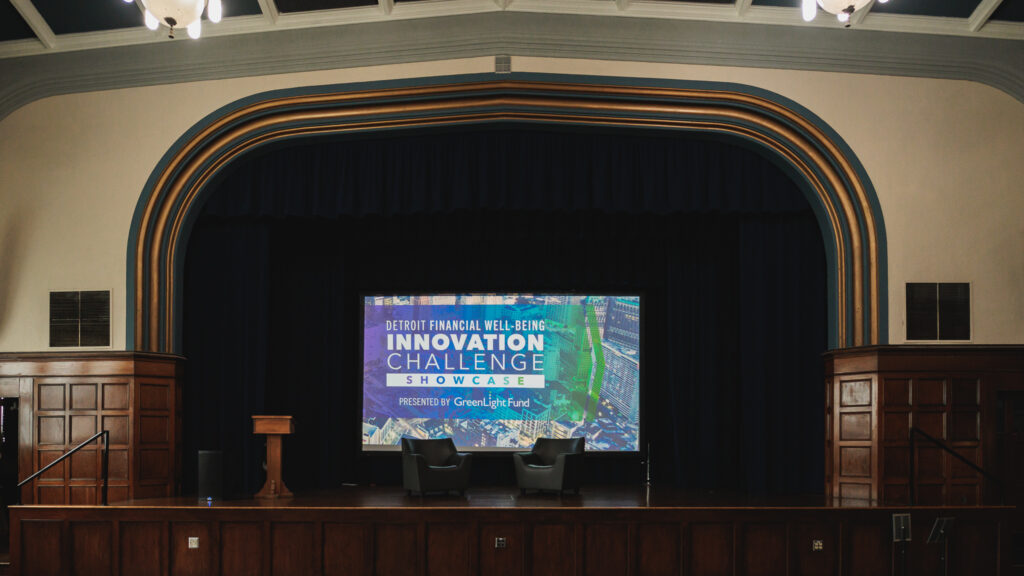
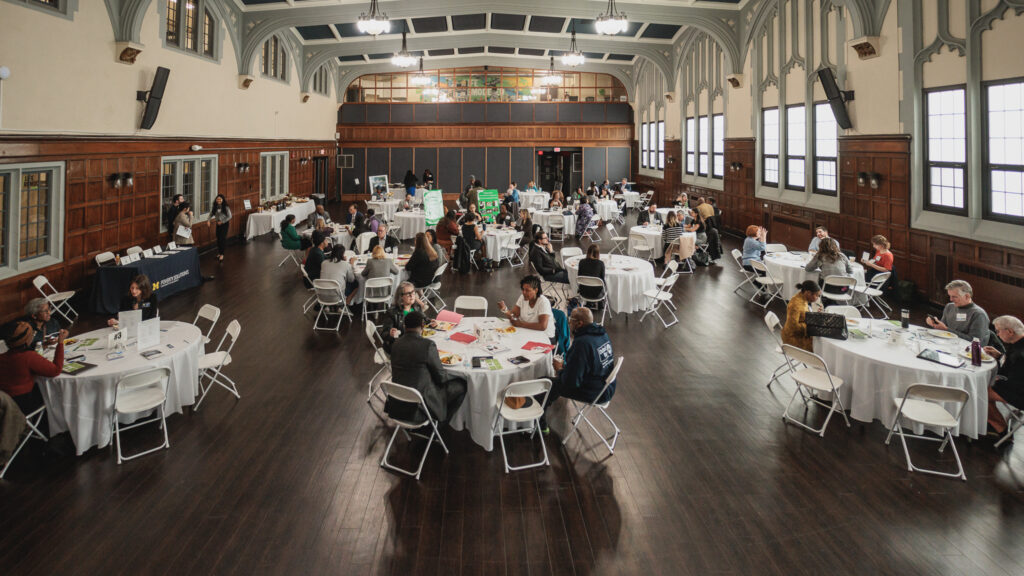
Traditional grantmaking processes often fail to involve community members or residents who are most affected by the issues being addressed, thus unintentionally contributing to inequities. The innovation challenge builds on lessons from United Way’s Centering Community Voice: A Blueprint for Incorporating Lived Experience into the Grantmaking Process, prioritizing engagement and feedback from Detroit residents throughout each phase.
During the concept phase, more than 30 teams submitted two-minute video pitches that were reviewed by Detroit residents who had experience with financial instability. Feedback from residents then had to be incorporated before teams could apply for the planning phase.
“The team that designed this challenge really wanted to prioritize community-centered development – from having a voice in deciding which projects could enter the challenge to being involved in designing the projects themselves,” said Sam Stragand, senior program manager for the Detroit Partnership on Economic Mobility, Poverty Solutions. Sam, who recently joined Poverty Solutions, wasn’t directly involved in the challenge design but is helping evaluate projects chosen during the upcoming pilot stage.
“We all can talk about the redevelopment of Detroit in one way or another, but a lot of the money has focused on specific parts of town – Downtown, Midtown, etc.,” Sam said. “I think that the city itself has made some progress in moving projects out from the core and into the neighborhoods, but this challenge really centers that idea by offering funding and support to groups that are already in the neighborhoods doing the work.
Denise Madewell, who has lived in the Warrendale neighborhood for more than 50 years, was eager to engage with the Warrendale Equity Investment Fund throughout the planning process. The group is aiming to use a “pay-it-forward” approach to provide zero-interest, low-barrier loans to residents of the community.
“It’s an exciting opportunity to be a part of something like this,” Denise said. “We live in the community. We know the community needs. It matters that our voices are included.”
Sam also feels excited about the challenge that is redefining grantmaking. “The collaboration and organization is incredible. I think it’s such an interesting process that can be used more widely to innovate in other areas,” Sam said.
UNSTACKING THE DECK
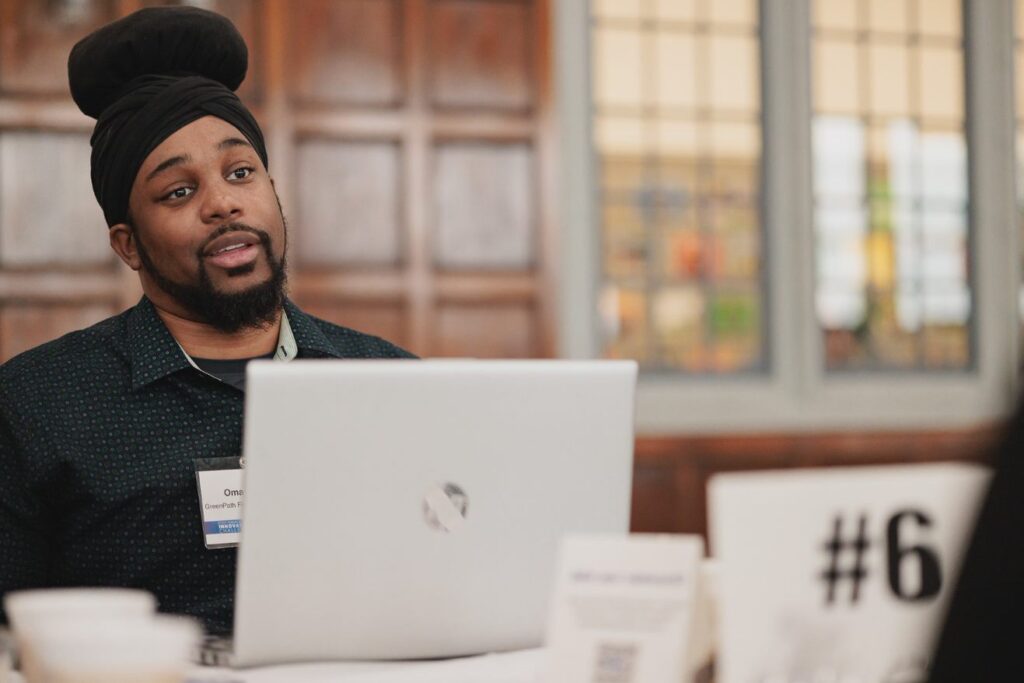
Innovation is what the Credit Escalator team had in mind when they set out to rethink existing debt management programs.
“We had wonderful tools, but they only worked for those who fit a very specific niche of people with access to credit, a functional budget and nice, friendly credit cards,” said Omari Hall, Credit Escalator team leader. “The problem is the person who fits that box is a suburban white person. Black, brown, and poor folks who had unsecured debt from collections, charge-offs, medical debt and repossessions were not being serviced because their debt profile didn’t fit that persona.”
The Credit Escalator team is creating a new tool that meets community needs by building credit and eliminating debt, while rebuilding trust in financial institutions along the way.
“For centuries, financial systems were designed so that only certain groups could participate,” Omari said. “Then, things like redlining and lending prejudice made participation extremely difficult.”
He added that historical practices, “explain the trust-gap between Black and brown communities and financial institutions, but it also explains the generational wealth gap that still exists today.”
Megan hopes the challenge will begin to rewrite existing social narratives that place the blame for poverty on the person in poverty and reinforce a “bootstrap mentality,” rather than blaming the systems that concentrate opportunities in white, middle-class communities while depriving communities of color and low-income communities of the same opportunities.
Kortez and others who have benefitted from the challenge, have similar hopes – to rewrite their own stories, to get ahead, and to provide opportunities for others.
“I’m grateful. I want to find a way to give back to the program – you know – keep the momentum going,” Kortez said.